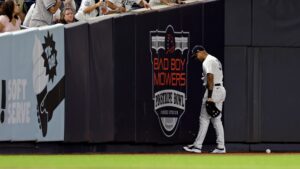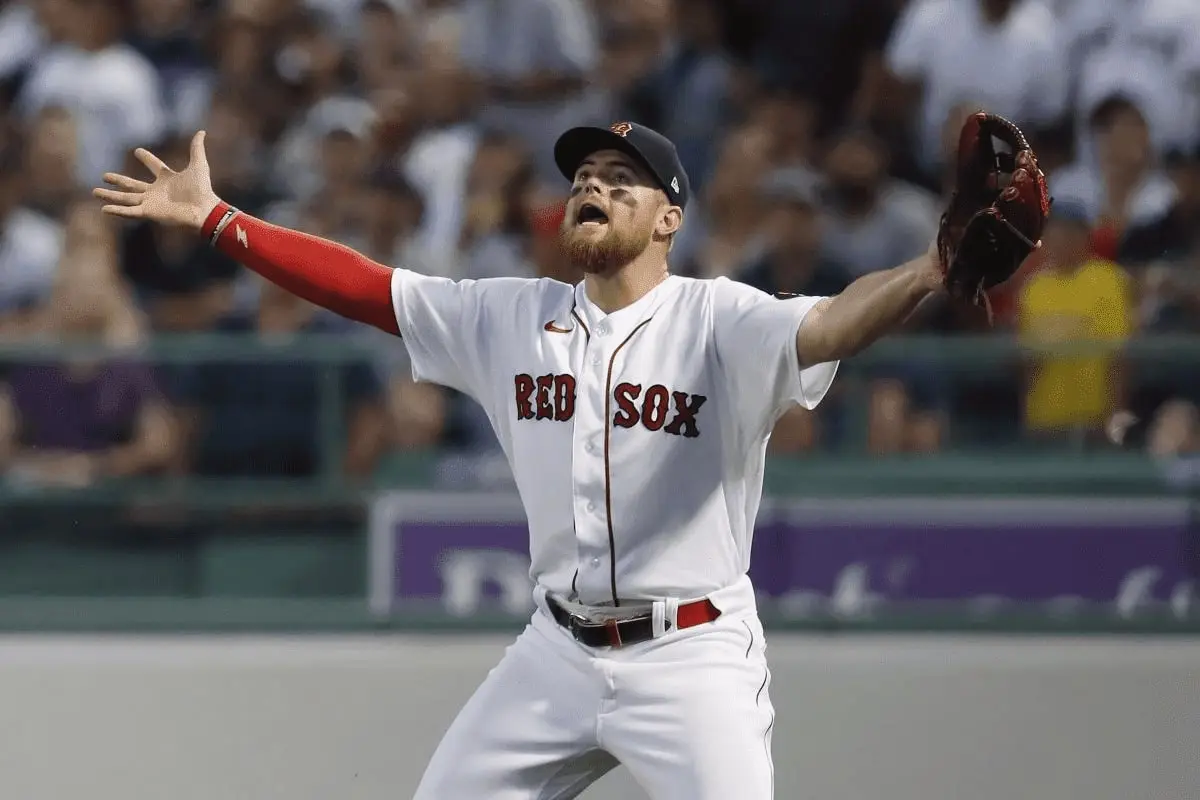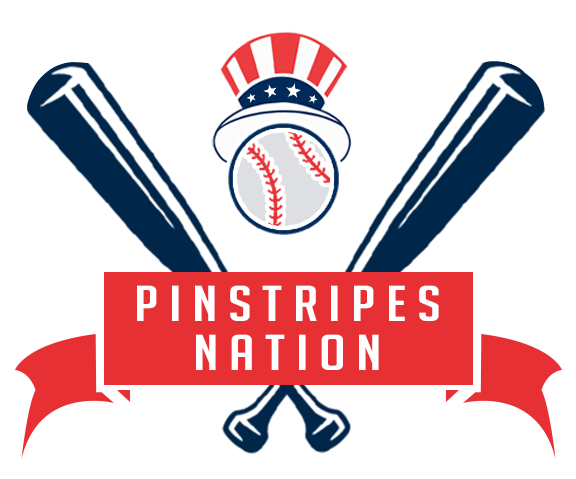Turning Point: Yankees succumb to ‘mental’ problem, lose game
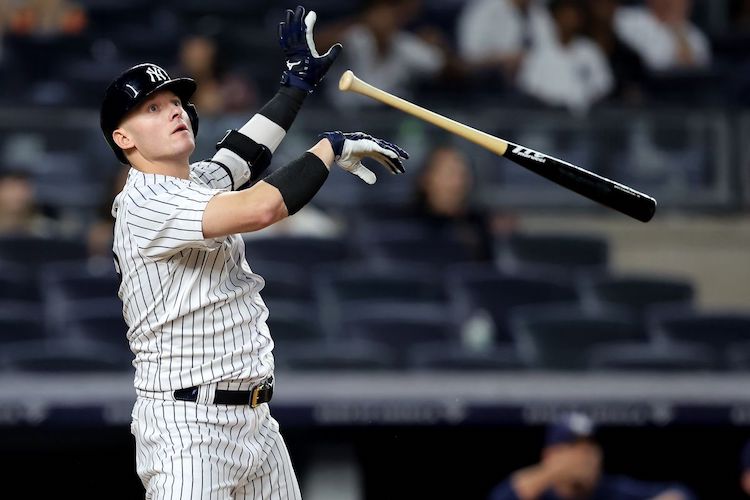
Table of Contents
On Friday, September 9, Aaron Hicks sprinted toward the right-field corner in pursuit of a slicing fly ball off the bat of Wander Franco. Moments before colliding with the wall, he extended his arm and did exactly what he wanted — he got the ball to land in the pocket of his glove.
And then it fell out.
Thinking that the ball was foul, Hicks hung his head in shame. Moments later, he returned to the present moment and tossed the ball to the cutoff man, Oswald Peraza. Two runs were scored by then from the routine fly ball. It proved to be the turning point and the Yankees lost that game 4-2.
It was obvious that Hicks misunderstood the call on the field. If he had touched it in foul territory, the ball would have been ruled dead, and the two Rays who scored would have to return to first and second base.
But if he hadn’t closed his eyes, slumped his shoulders, and stood there ruminating about his error, he could’ve seen the runners advancing and saved at least one run.
The next play, Hicks botched a more difficult catch, a hard-hit line drive that turned him around and sailed over his head. The boos rained down on him. After the inning ended, Aaron Boone took Hicks out of the game, hinting to ESPN that it was due to his emotional response to the error and boos.
“I guess it’s all part of baked into why I made the decision, feeling like it was having an effect,” the manager spoke about taking Hicks off and said, “I just felt like I needed to do it.”
This isn’t the only example of a player’s psychological state having a negative effect on the Yankees. Before Hicks’ struggles, most Yankees fans’ ire was directed at Joey Gallo, whose batting average of .159, OBP of .282, and OPS+ of 77 were all low points of his career.
Watching Gallo cursing to himself after strikeouts made it clear that his year-long slump had a psychological component, and Gallo confirmed it himself in an interview with NJ.com, saying he felt like a “piece of shit” in New York and was even afraid to show his face on the streets of The Bronx.
If two examples aren’t enough to call this a persistent problem for the Yankees, one only needs to add Gary Sanchez’s 2020 and 2021 seasons. Also, there are Gerrit Cole’s poor performance due to a four-minute delay and Aaron Boone’s slapping the table in anger during one of the Yankees’ worst slumps of the year.
While neither Sanchez nor Gallo has been transformed into an incredible new player since leaving New York. They’re both at least better. Joey Gallo was quick to credit the better atmosphere of the Dodgers organization, saying that coming to L.A. was “a lot of weight off his shoulder.”
So how do the Yankees fix this?
Some quick research confirms that the Yankees do indeed have a Mental Conditioning Department, but there’s little else one can know about it. Is it possible for the Yankees to coach players like Aaron Hicks on mindfulness — staying in the present moment, accepting the errors of his past, and not trying to make up for it with ugly at-bats where he swings out of his shoes?
Playing for the Yankees has always been more difficult than playing for small-market teams. New York’s ruthless media presence — to say nothing about its passionate fans — puts more pressure on players than anywhere else.
The Yankees can’t change New York. They need to start teaching their players how to handle it.
Do you agree with it? Are the Yankees under tremendous psychological stress? Do they need interventions?
- Categories: Aaron Hicks, joey gallo, mental problem, New York Yankees
- Tags: Aaron Hicks, joey gallo, mental problem, New York Yankees
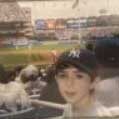

 Follow Us
Follow Us

